Today’s readings: Isaiah 61:1-3a, Psalm 147, Romans 8:18-27, Matthew 8:5-17
I’ve talked to a lot of sick people, and I’m amazed at how many of those who are really ill, who have come through something very difficult, have told me that they attributed their healing, or at least the ability to get through the tough times, to their faith. I’m not surprised by that, of course, but I am always moved when a person realizes that even in their hardest hours, God has not abandoned them, that he walks with them and bestows healing in some way, at the time when it’s needed.
This Mass is a testimony to that healing. In the Anointing of the Sick, the Church proclaims courageously that there is no malady that cannot be addressed by our God; that he can take on whatever ails us, bind up whatever is broken in us, and bring forth something new, something beautiful, something perhaps unexpected. Today we gather as the Church and place our faith in the healing of our God. We acknowledge that the healing God brings us doesn’t always make all of our illness go away, but we also don’t rule that out. We trust that God, who sees the big picture, knows what is best for us and desires that we come to the greatest good possible. We also trust that God’s grace is enough to help us address illness, infirmity, pain, suffering, and the ardors of medical treatment. We know that our God walks with us in good times and in bad.
Our readings today help us to express the faith we place in this wonderful sacrament and in the healing that Christ brings us. In the Gospel, Jesus is amazed by the faith of the centurion who trusts that Jesus’ healing can transcend time and space and that “just the word” of Christ would bring that healing to his servant. His is a faith we use to express our own faith in the healing power of the Eucharist whenever the priest raises the host and cup: “Lord, I am not worthy that you should enter under my roof, but only say the word and my soul shall be healed.” These words remind us also that healing is not just a physical thing. The soul and the spirit have to be healed in so many ways, from the evils of sin to the sadness of infirmity – Christ’s healing power addresses our brokenness from the inside out, and that power is so beautifully manifested in the Eucharist we celebrate.
The second reading is solace for weary pray-ers. Especially during times of illness, it can seem like we pray and pray and pray, and there is no answer, or little answer, even silence from our God. We may also feel so overwhelmed by our situation that we don’t know how to pray. I myself felt that way in my second year of seminary when both of my parents were diagnosed with cancer within a month of each other. I had no idea what to say to God any more, and the only thing I could do was groan “Help!” And that was enough. The Holy Spirit took care of the rest of my praying, as did so many of my classmates who came to pray for me and with me. I did not know how to pray as I ought, but the Spirit certainly interceded with groanings I could not manage to express. That happens often during times of illness and crisis. But faith says that we don’t have to have all the right words, because our faith is enough and our God knows what we need.
And so in our faith, we gather today to express the prayers of our hearts, perhaps prayers we haven’t been able to utter for some reason or another. We gather today to place ourselves in God’s hands and experience his healing, in whatever way is best for us. The Apostle Saint James tells us that we should turn to the Church in time of illness, calling on the priests to anoint the sick in the name of the Lord, knowing that God desires healing, and that the prayer of faith will save the sick and raise them up, forgiving them their sins.
The Church has this sacrament because of who Jesus was and because of what he came to do among us. Jesus was that suffering servant from the book of Isaiah’s prophecy, the One who took on our illnesses and bore our infirmities. He was spurned and avoided, oppressed and condemned, all the while giving his life as an offering for sin, justifying many, and bearing their guilt. God always knew the frailty of human flesh, but when he decided to come to his people, he did not avoid that frailty; instead he took it on and assumed all of its effects. This is why we treat the sick with dignity: our frailty was good enough for our God, and we know that the sick are very close to our Lord in their suffering, because he suffered too.
And we know that Jesus cared deeply for the sick and the suffering. Large portions of the Gospel – including today’s Gospel reading – see Jesus caring for the sick, responding to their faith, healing them from the inside out. The sick sought him out, they called out to him as he passed along the way, they reached out to touch just the tassel of his cloak, their friends brought them to Jesus, even lowering them down from a hole in the roof if the crowds were too big. He was moved by their faith, always responding to them, healing not just their outward symptoms, but also and perhaps most of all, the inner causes of their illnesses, forgiving their sins, and giving them a place in the Kingdom.
Jesus still does this today. He still walks with us in our suffering, whether we are to be cured or not, letting us know that we don’t suffer alone. He still responds to our faith, curing our brokenness and healing our sinfulness. If he judges that it is best for us, he heals our outward symptoms too, perhaps even curing our diseases, and he gives us all a place in the Kingdom, if we have the faith to accept it and to receive the healing he brings us.
Jesus continues his healing mission through the Church in our day. Certainly the priests provide the sacraments to the sick and the dying. But also, the entire people of God are called to the corporal work of mercy of caring for the sick. Every act of mercy and every prayer for the sick is part of the healing work of Jesus. Doctors and nurses and therapists and other caregivers also provide the healing ministry of Jesus, particularly when they are men and women of faith. This ministry is also provided by our many Ministers of Care, people who visit the sick and bring them the Eucharist in their homes, in hospitals, and in nursing homes. The Church’s ministry to and with the sick is the visible sign of the love of God at work in our world and his care for all those who are suffering.
We don’t know if you all will walk out of this holy place healed of all your diseases. But we can promise that you will be freed from your sins, healed from the inside out, and that your Lord will always walk with you in your suffering. We have faith that healing will come at some time in some way, of the Lord’s choosing, for your good, and for the glory of God. That’s why we are here today. That’s why we celebrate this beautiful sacrament with you today. We know that our Lord deeply desires to heal us. And we know that every healing moment is a miracle, made possible by God’s great love poured out on us when we make an act of faith.

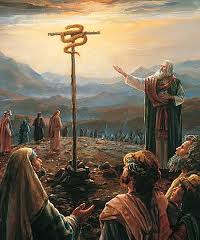
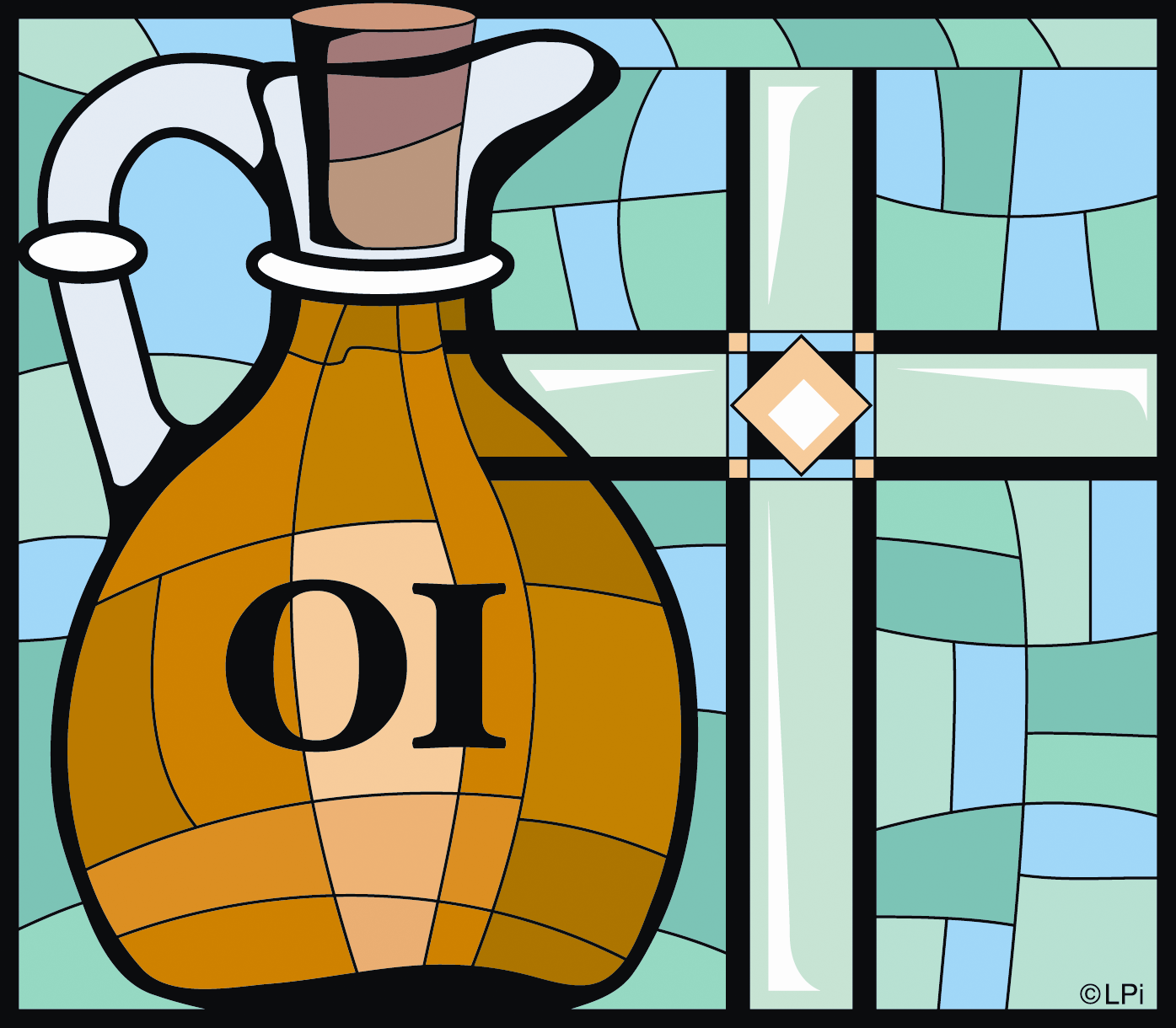
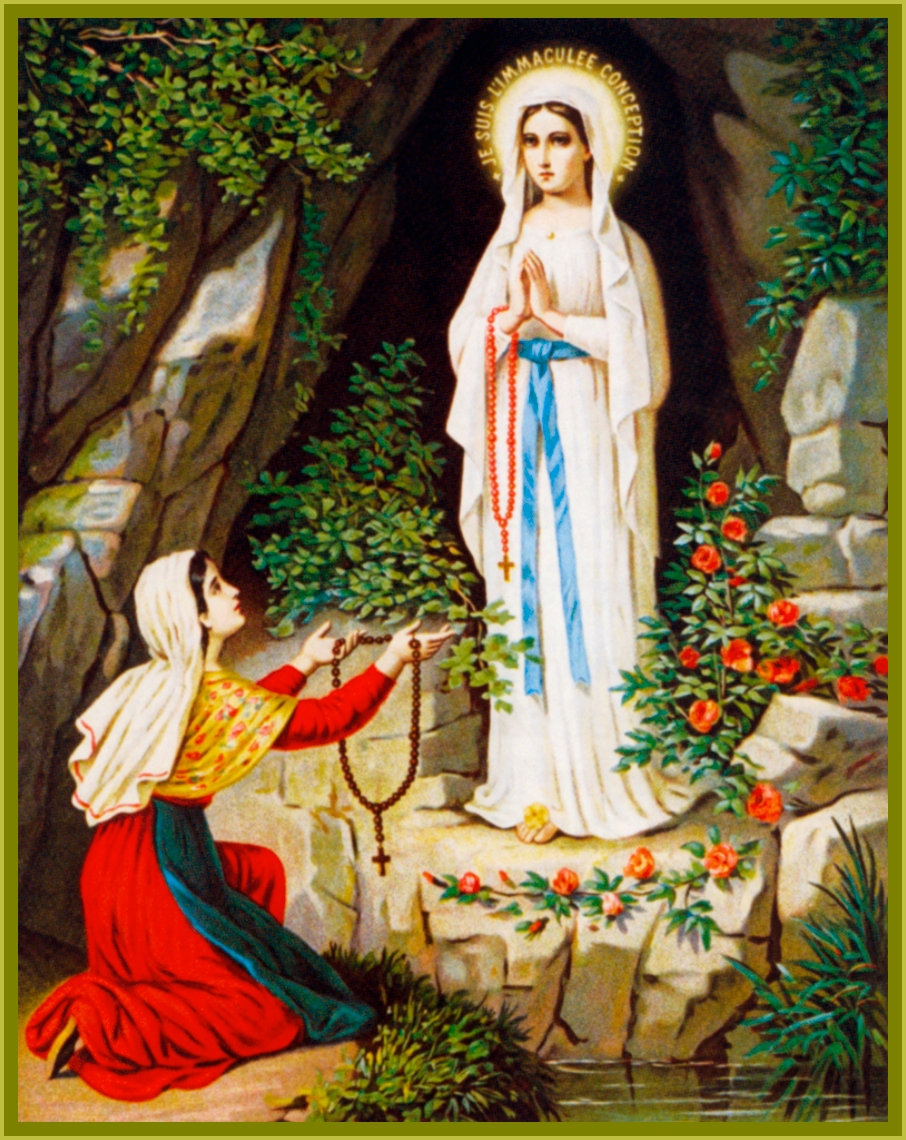
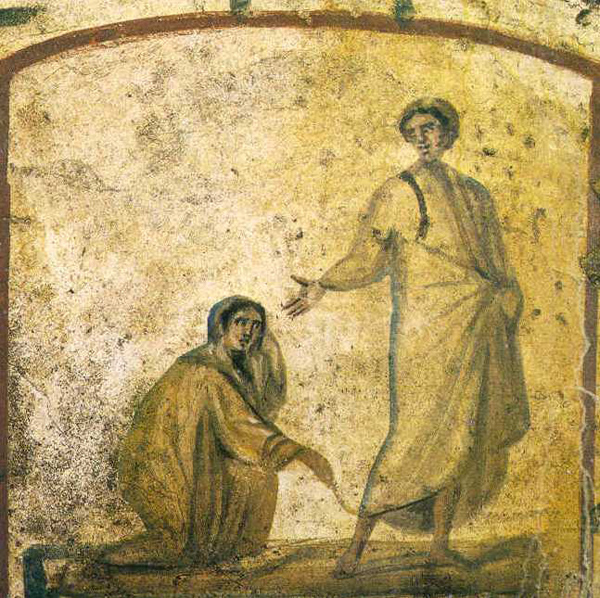
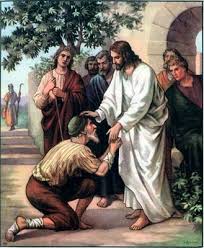

You must be logged in to post a comment.